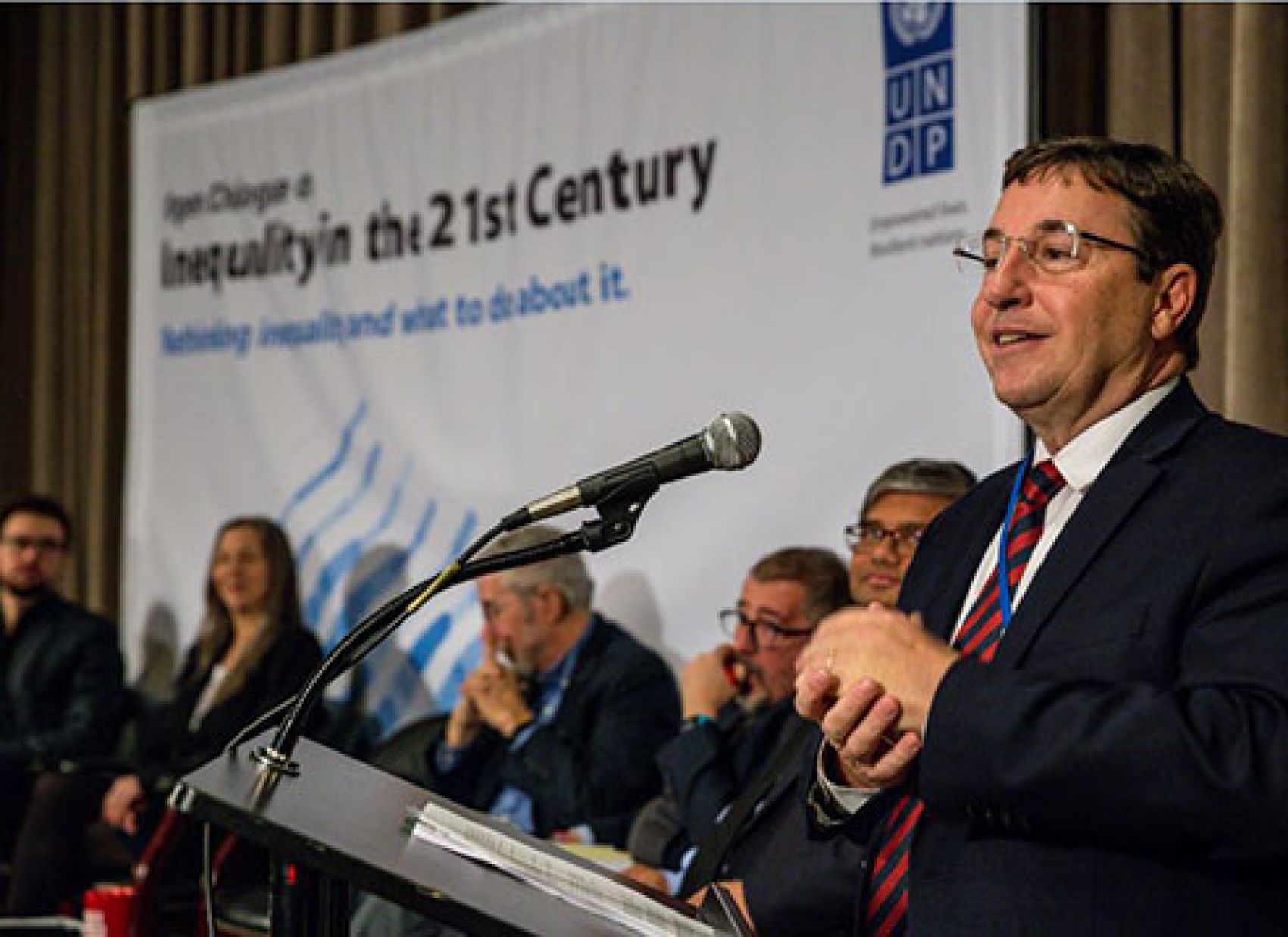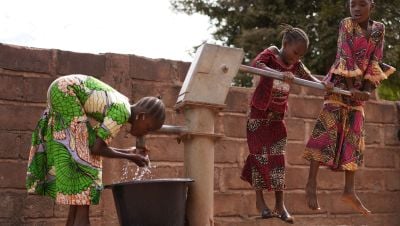Inequality is a defining challenge of our time. But what does it really look like? Do we have the right measures of inequality? And what might this mean for societies worldwide for the rest of the 21st Century?
On 29 March 2019, the Human Development Report Office (HDRO) organized an Open Dialogue on Inequality in the 21st Century led by Achim Steiner, UNDP Administrator, and Paul Krugman, Nobel Memorial Prize in Economic Sciences and distinguished Professor at the Stone Center on Socio-Economic Inequality at the City University of New York.
“Development means in many respects freeing people from poverty, from economic vulnerability, from environmental risks and so on. If we conceive development as freedom, then inequality becomes an imprisonment”, said Mr. Steiner in his opening remarks.
Steiner also emphasized the important role that UNDP, and the whole UN family, have in addressing this challenge. “Virtually every government is looking across the world for inspiration, ideas and approaches to address inequality in a way that does not distort the opportunities for development”, Steiner concluded.
“There has really been an explosion of interest in inequality […] But why has it taken so long?” Mr. Krugman’s intervention focused on the evolution of the interest on inequality in the economic, social and political spheres. He referred to the three ‘D’s in the history of the discourse on inequality in the United States: dismissal of inequality as a significant problem, then a denial of the evidence to show that inequality was rising, and finally a detour of the debate on the causes of inequality – linking it to issues like education, college and non-college wage gap etc.
Pedro Conceição, Director of the Human Development Report Office at UNDP, opened the event. And a panel discussion with leading global experts including Mario Cimoli, Deputy Executive Secretary, United Nations Economic Commission for Latin America and the Caribbean; Lucas Chancel, Co-Director, World Inequality Lab; Janet Gornick, Director, Stone Center on Socio-Economic Inequality at CUNY Graduate Center and Director, United States Office of LIS; Kunal Sen, Director, UNU-WIDER; and Luis Felipe López-Calva, UNDP Assistant Administrator and Regional Director for Latin America and the Caribbean, followed.
Panelists echoed earlier remarks, noting that there is an increased interest in inequality around issues such as on intergenerational social mobility and democratic rights; and reflected on how inequality is changing given the economic, social, technological and environmental transformations that are unfolding worldwide. Central to the discussion was the need for more data to better measure inequality in the Sustainable Development Goals (SDGs) context and the role of governments in increasing the level of transparency on income and wealth. Moreover, panelists noted that trends in inequality differ across regions, and coherent engagement is needed to address the challenges posed by the emergence of inequality, which is going to lead UNDP’s work in the coming years.
This Open Dialogue closed a two-day Symposium on Measuring Inequality in the 21st Century organized by HDRO in partnership with LIS Cross-National Data Center, the Stone Center on Socio-Economic Inequality at the City University of New York, UNU-WIDER, and the World Inequality Lab.
For two days, experts from partner organizations as well as from the ECLAC, CEQ Institute, Columbia University, IMF, ILO, UNDESA, New School, OECD, UN WOMEN, UNDP, Universidad de Buenos Aires, and the World Bank discussed the state of inequality measurement in the world – main gaps, challenges and innovations – and explored a collaborative agenda to refine concepts, data and methodological approaches. Particular attention was given to how to integrate different data sources to overcome problems in the measurement of inequalities in different contexts. Participants also discussed what actions should be promoted among UN Member States, policy makers, academics and global data providers (access agenda here).


